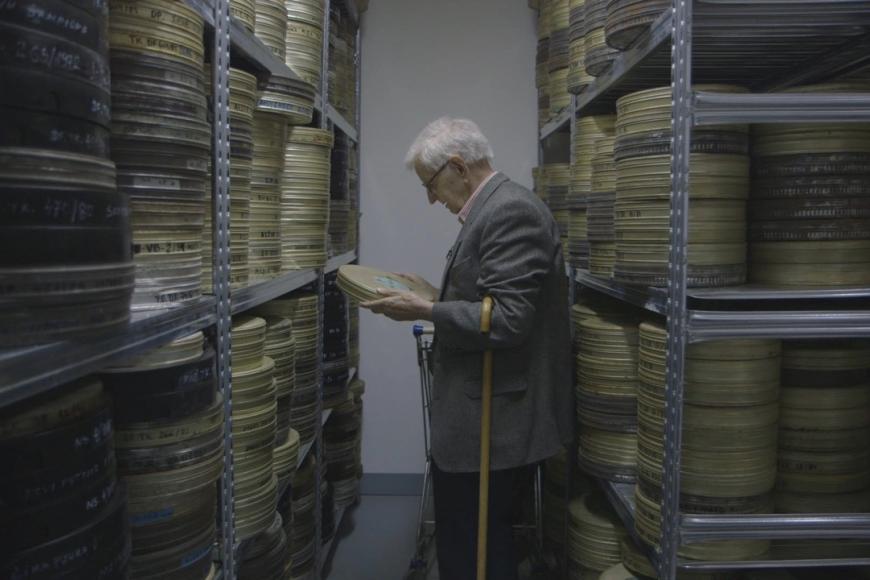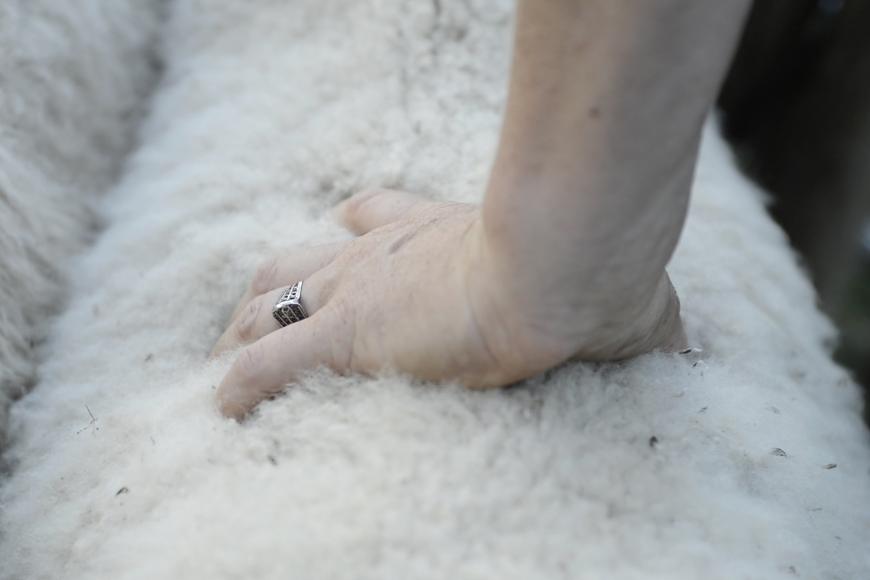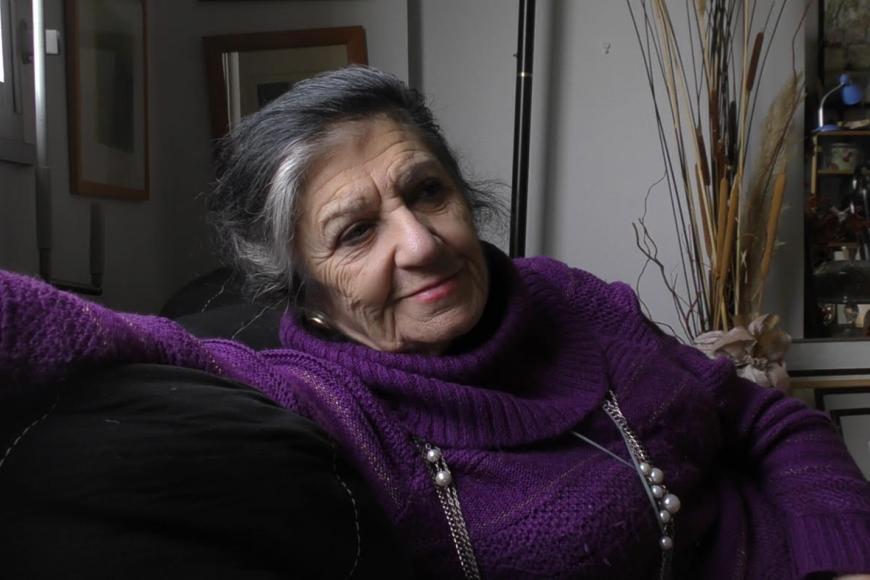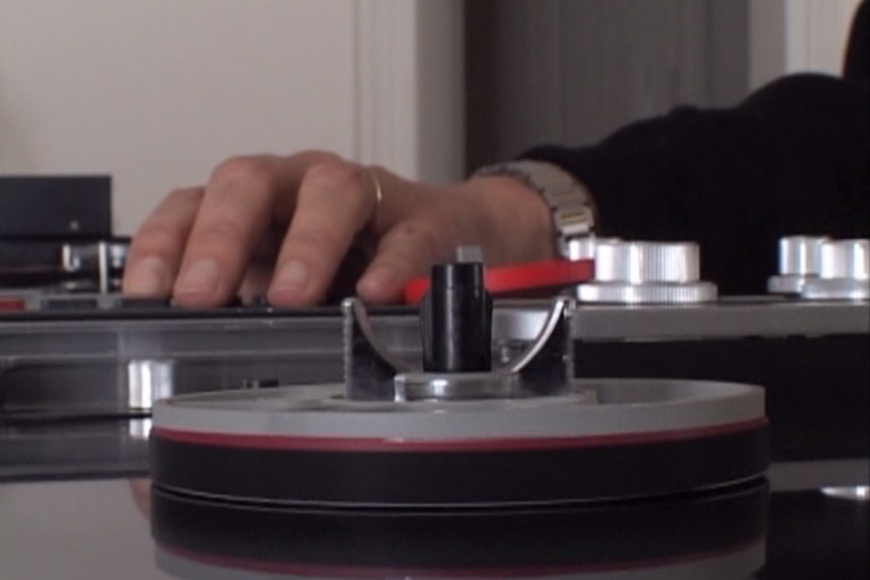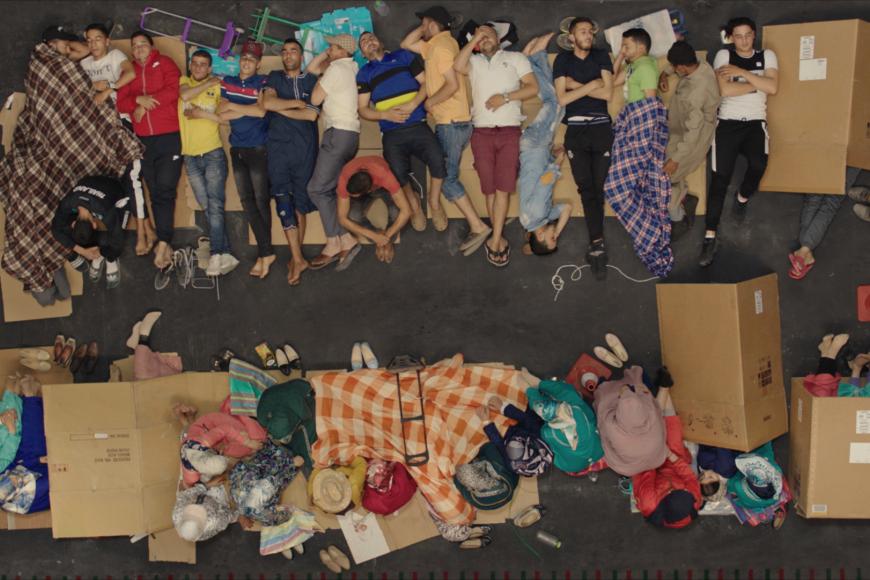
Ceuta’s Gate
Everything seems neat at first in Randa Maroufi’s performative reconstruction. Cars form orderly queues; market women tie up their baggage. On the monotonous grey background, the scenes appear schematic, like a blueprint where suddenly everything becomes graphically condensed. Everyday life at the border between the Spanish exclave of Ceuta and Morocco, which is crossed illegally by all kinds of goods.

